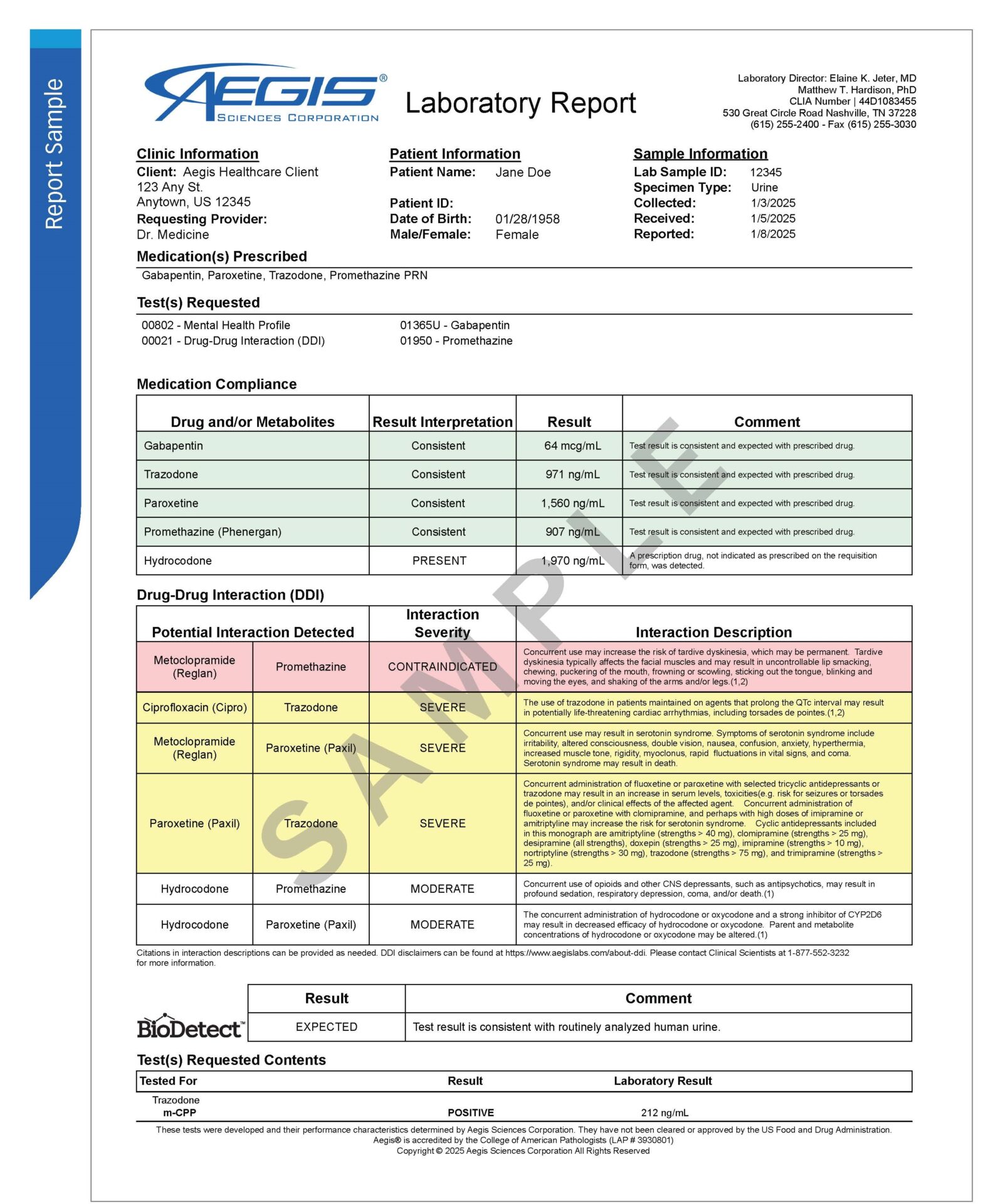
Movement Disorder Secondary to DDI in Behavioral Health Client
This is an example scenario based on real medication compliance results.
Challenge
MJ is a 61-year-old female who recently presented to her primary care provider for a mid-year checkup. Her past medical history includes major depression, neuralgia and insomnia. She states that she has had new onset pain in the past two weeks after a recent fall at home and uncontrollable shaking of her legs that resulted in a trip to the emergency room. MJ claims that she has been taking her medications “pretty regularly” and is worried that her side effects may return. The provider is very concerned about the patient and would like to find out more information before initiating a treatment plan or adjusting her current medications.
The patient is currently prescribed:
• Gabapentin 300 mg twice daily for neuralgia
• Paroxetine 40 mg daily for depression
• Promethazine 25 mg every 4 to 6 hours as needed
• Trazodone 75 mg at bedtime for insomnia
Solution
The primary care provider orders Aegis’s mental health testing profile and InterACT Rx™ tests to confirm the client’s medication compliance and further optimize her therapeutic regimen.
The results of definitive testing confirmed that the patient was ingesting all of her prescribed medications; however, there was also an unexpected positive for hydrocodone which the patient didn’t inform the provider of at the time of the appointment. The InterACT Rx test identified recent ingestion of metoclopramide and ciprofloxacin.
The use of metoclopramide and promethazine are contraindicated as both drugs can increase the risk of tardive dyskinesia. Tardive dyskinesia describes multiples movement disorders such as classic tardive dyskinesia, tardive dystonia, tardive akathisia, tardive tremor and tardive tics. Acute akathisia can occur shortly after the ingestion of a dopamine receptor blocking agent (e.g., metoclopramide).
Additionally, the InterACT Rx detected drug combinations that could put the patient at risk for serotonin syndrome (paroxetine + metoclopramide + trazodone), drug-induced arrhythmias (trazodone + ciprofloxacin), and central nervous system depression (hydrocodone + promethazine).
Outcome
After discussing the results with the patient, the primary care provider discovered that this patient had previously visited a community care center for chest tightness, which was diagnosed as gastroesophageal reflux disease (GERD). The provider at the community care center prescribed the patient metoclopramide. InterACT Rx was able to identify that the patient was ingesting this medication that is contraindicated for patients also taking promethazine. The primary care provider discontinued her metoclopramide and transitioned the patient to a more appropriate therapy for GERD as tardive dyskinesia can develop into a permanent condition. Furthermore, the provider was also able to counsel the patient regarding her new medications, and reinforce the dangers of drug-drug interactions.



